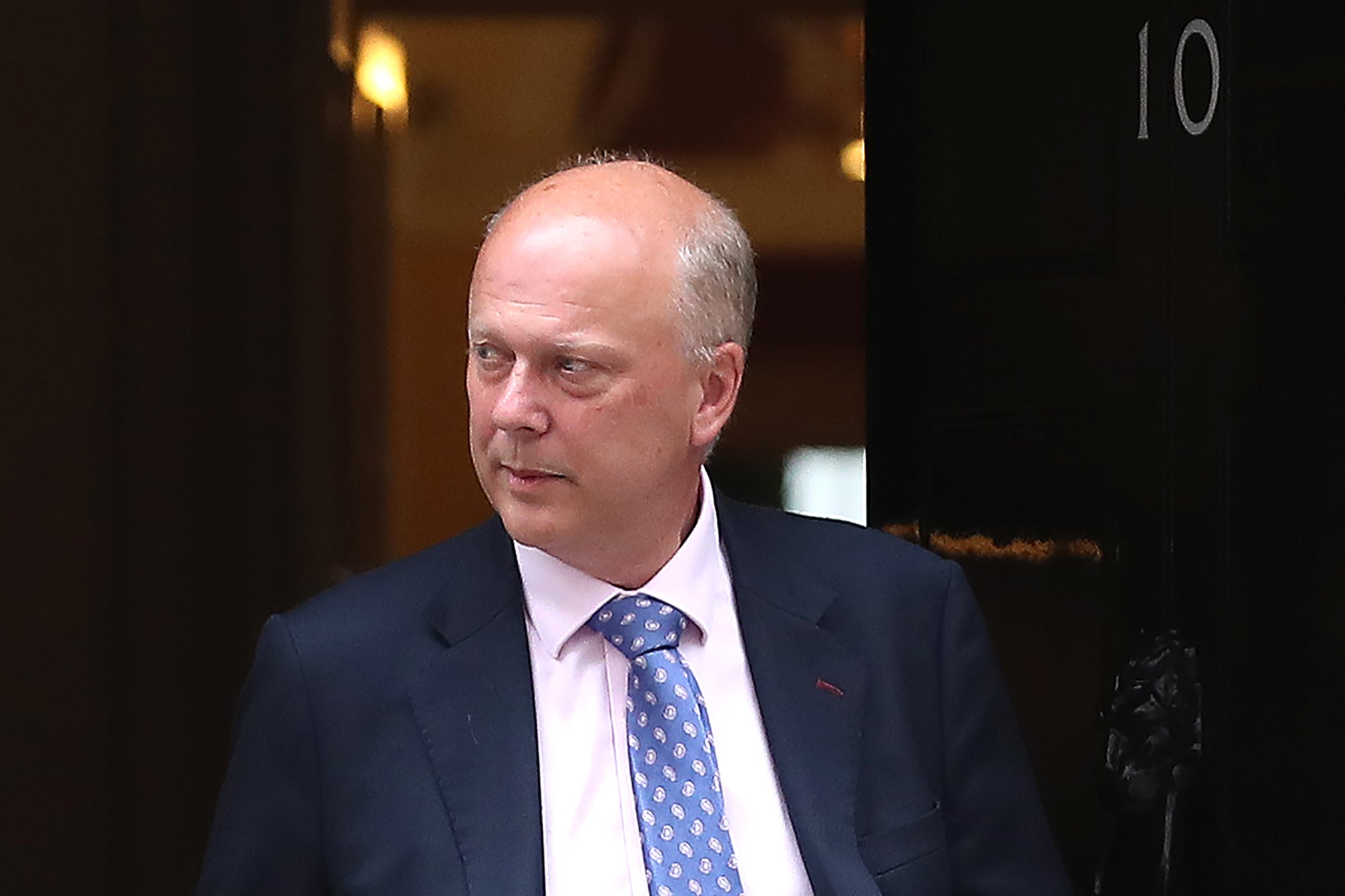Shift transport spending from London to more deprived regions, say MPs
Chair of Commons committee tells government to be 'more honest with Parliament and the public'

The government should divert money away from London and invest in railways in more deprived parts of the UK, a committee of MPs has said.
The Commons Transport Committee said current Whitehall policies mean a disproportionate amount of transport funding is being spent in the capital, at the expense of less developed areas of the country.
It also piled pressure on beleaguered transport secretary Chris Grayling, who Lillian Greenwood, the chair of the committee, accused of having been “less than candid”. Mr Grayling should have been “more honest with Parliament and the public”, she said.
Under current government funding models, money for transport is spent where it is most likely to reduce congestion and cut journey times.
The committee said this especially benefits London and “actively disadvantages” less developed regions, hindering attempts to rebalance the economy through initiatives such as the Northern Powerhouse and Midlands Enginge.
The report comes amid an ongoing row over transport spending priorities following the cancellation of rail line upgrades in the Midlands, Lake District and Wales.
Days after confirming the improvements were to be scrapped, ministers announced their support for the proposed Crossrail 2 line in London and committed to fund preliminary work costing.
The Transport Committee called on the government to reconsider its decision to cancel the electrification of the lines.
Ms Greenwood said: “The Secretary of State’s cancellation of three rail electrification schemes in the Midlands, south Wales and Lake District only to be followed four days later by the announcement in principle to fund Crossrail 2 in
London unsurprisingly re-ignited the debate about disparities in rail infrastructure investment between London and other regions.
“The Treasury’s own data shows that spending per head in London in 2016/17 was more than ten times that of the East Midlands. Regional economies will never be able to catch up with London while such inequalities exist."
Ms Greenwood also accused Mr Grayling of obstructing the committee’s attempts to scrutinise his department.
She said: “Our inquiry considered the electrification debate and the timing of the cancellation announcement – a process which has been complicated by the less than candid approach of the Secretary of State.
“We are disappointed he did not engage more openly with our scrutiny of his decision. The Government should have been more honest with Parliament and the public about the real reason for the decision. An announcement made by Written Statement on the last day before summer recess offered limited opportunity for debate and scrutiny.”
Government data shows London has received almost five times more in railway investment in the last five years than any other region.
Even once population size is taken into account, the capital still receives significantly more: £773 per person compared to just £70 in the East Midlands.
London transport chiefs have argued that this is because public transport is used significantly more in the capital than elsewhere, and spending per passenger journey in London is well below the national average.
Recognising the imbalances, the Department for Transport introduced a "rebalancing assessment toolkit” to help redistribute funding. However, the committee said it did not believe this would make a “material difference” and suggested the policy was “an afterthought”.
It said: "Current transport scheme appraisal methods disadvantage regions in need of economic regeneration. This is working against the Government’s intention to rebalance the economy. The current appraisal methods, which heavily weight journey time saved, will always favour London."
Methods for allocating funding should be changed to focus more heavily on boosting the regeneration of poorer areas, it added.
The MPs said the government must be “more specific” about how they will rebalance transport spending, adding: “People in regions like the North East and the South West, which have experienced relative under-investment in recent periods, must have a clear sense of what the government is trying to achieve and be able to judge its success.”
A Department for Transport spokesperson said: "As this report makes clear, this government is investing significant extra resources as the railway undergoes its biggest modernisation since Victorian times - making sure people are better connected and their journeys are quicker, more convenient and more comfortable.
"We are reversing years of underinvestment because a better, quicker, more efficient transport network increases productivity and makes it easier to do business as we continue to rebalance the UK economy."
They added: "The next few years will actually see higher government spending in the north, compared to the south, and by 2020 all Northern and TransPennine will be new or refurbished, with an extra 500 carriages providing space for 280,000 extra passengers and 2,000 extra services each week.
"A third of all enhancement spending over the next five -year investment period - £3bn - will be used to upgrading the route between Leeds, Manchester and York, as we also see the roll out of the new intercity express trains serving the east, north east and south west."
Subscribe to Independent Premium to bookmark this article
Want to bookmark your favourite articles and stories to read or reference later? Start your Independent Premium subscription today.

Join our commenting forum
Join thought-provoking conversations, follow other Independent readers and see their replies